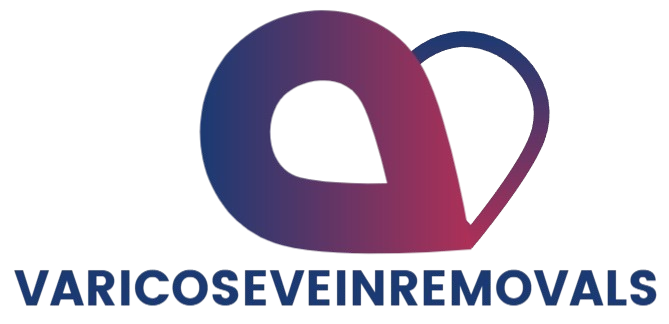As we age, maintaining good health becomes more than just about feeling well day-to-day. It’s about being proactive and taking steps to ensure that we can fully enjoy our golden years with vitality and joy. A critical part of this process is understanding the essential health tests that can help identify potential issues before they become serious problems. Regular screenings are key to living a long, healthy life, and when tailored to individual needs, they can make all the difference in managing your health effectively.
This guide explores the most important health tests seniors should consider to maintain optimal wellness. Whether you’re navigating your own health journey or assisting a loved one, understanding these screenings will empower you to take charge of your health with confidence.

The Building Blocks of Senior Health
Preventive healthcare for seniors starts with a few foundational health screenings that can provide valuable insights into your overall well-being. According to the Preventive Services Task Force, these screenings go beyond the basic check-ups to include tests for blood pressure, cholesterol levels, bone density, and more. Each of these plays a crucial role in spotting health risks early and keeping common senior health issues at bay.
Blood Pressure Monitoring: High blood pressure is often called the “silent killer” because it typically doesn’t show symptoms. Regular blood pressure checks—at least once every two years for those with normal readings, or more frequently if high blood pressure is a concern—are essential for detecting and managing hypertension. Left unchecked, high blood pressure can lead to serious issues such as heart disease, stroke, and kidney damage.
Cholesterol Screenings: Cardiovascular health is a top priority for seniors. Cholesterol screenings, recommended every 4 to 6 years, help assess the levels of “bad” cholesterol in your blood. Early detection allows for lifestyle changes or medication to reduce the risk of heart disease, especially if there’s a family history of heart conditions.
Bone Density Scan: After the age of 65, bone health becomes a priority. Osteoporosis, a condition that weakens bones and makes them prone to fractures, is common among older adults, particularly women. A bone density scan helps identify the risk of osteoporosis early, allowing for interventions to prevent fractures.
Kidney Function Exams: Kidney disease often develops slowly and without noticeable symptoms. Regular tests to check kidney function, especially for those with risk factors like diabetes or high blood pressure, are crucial. These tests can catch issues before they become critical, ensuring timely treatment.
Dental Exams: Maintaining oral health is another important aspect of senior wellness. Dental problems can signal other health issues, such as diabetes or heart disease, and can also lead to complications from medications. Biannual dental check-ups are essential for maintaining not only a healthy smile but also overall health.

The Role of Cancer Screenings
Early detection is one of the most powerful tools in cancer treatment. Regular screenings can catch cancers at an early, more treatable stage. For seniors, several key cancer screenings should be considered.
Breast Cancer Screening: Starting at age 40, women should consider mammograms to screen for breast cancer. For those with a family history or other risk factors, earlier and more frequent screenings may be necessary. Discussing the right schedule with your healthcare provider is essential.
Colorectal Cancer Screening: Colonoscopies or other colorectal cancer screenings should begin at age 45, or earlier for those with a family history of the disease. These screenings can detect polyps that could develop into cancer, allowing for early intervention.
Prostate Cancer Screening: For men over 50, discussing the PSA test with a doctor is important. Men with a family history of prostate cancer or other risk factors may need more frequent screenings. The benefits of early detection versus the risks of testing should be carefully considered with a healthcare provider.
Lung Cancer Screening: Seniors with a history of smoking should consider lung cancer screenings with low-dose CT scans starting at age 55. Early detection in those at high risk can improve outcomes significantly.
Skin Checks: Skin cancer is one of the most common types of cancer in seniors. Regular self-exams for any changes in skin appearance, as well as annual dermatologist visits, are key for early detection, particularly for those with a history of sun exposure or a family history of skin cancer.
Comprehensive Care: Vision, Hearing, and More
In addition to the standard health screenings, seniors should consider regular tests for vision, hearing, and other conditions that can affect quality of life.
Vision and Hearing Tests: Age-related changes in vision and hearing can significantly impact a senior’s ability to live independently. Regular check-ups for both vision and hearing can help catch problems early and improve quality of life by ensuring seniors have the proper support, such as glasses, hearing aids, or treatments for any issues.
Comprehensive Blood Tests: Blood tests can reveal important information about diabetes, thyroid function, liver health, and more. These tests can help manage existing conditions or uncover new ones early. Seniors should have routine blood tests to monitor these vital areas and ensure their health remains on track.
Mental Health Monitoring: Mental well-being is just as important as physical health. Depression, anxiety, and other mental health conditions are common among seniors. Regular discussions with healthcare providers about mental health, along with screenings for conditions like dementia, can lead to better support and care.

Making Smart Health Decisions
As you age, your health screening needs may evolve. Some tests may no longer be necessary, while others become more crucial. Regular discussions with your healthcare provider are essential for tailoring a health plan that fits your current needs.
Here are some essential questions to ask your doctor to make sure your health screenings are aligned with your needs:
- Why is this test important? Understanding the purpose of each screening helps you make informed decisions about your health care.
- How often do I need this test? The frequency of tests varies by individual health risks, so it’s important to know how often certain tests should be conducted.
- What are the benefits and risks of this test? Some screenings come with risks, such as false positives, so it’s vital to weigh the potential benefits and drawbacks.
- Are there alternatives to this test? In some cases, there may be less invasive or simpler ways to achieve the same results.
- What will happen if the test result is abnormal? Knowing what steps to take after a test result helps you prepare for any necessary next steps.
Embracing a Holistic Approach to Health
Health tests are only one piece of the puzzle when it comes to senior wellness. A healthy lifestyle—filled with nutritious food, regular physical activity, and effective stress management—is equally important. Small changes, like eating more fruits and vegetables, quitting smoking, and staying active, can have a significant impact on your overall health and complement the benefits of regular screenings.
By staying informed and taking proactive steps, seniors can ensure they are prepared for the challenges of aging, making the most of every year and maintaining independence and quality of life.

Conclusion
The journey through your senior years can be filled with vitality and joy, but it requires proactive care and attention. By staying on top of essential health tests and screenings, you can identify potential issues early, receive the right care, and maintain a high quality of life. Whether you’re managing your own health or caring for a loved one, taking the time to schedule and follow through with these tests is one of the best ways to ensure that your later years are as healthy and fulfilling as possible.



